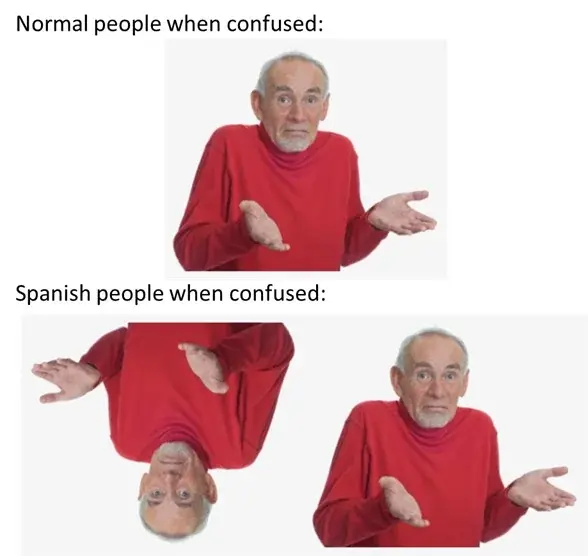this post was submitted on 05 Nov 2023
1523 points (98.4% liked)
Memes
46009 readers
3716 users here now
Rules:
- Be civil and nice.
- Try not to excessively repost, as a rule of thumb, wait at least 2 months to do it if you have to.
founded 5 years ago
MODERATORS
you are viewing a single comment's thread
view the rest of the comments
view the rest of the comments

In spanish questions intonation changes occur only on the last word(s), not the whole sentence. I'm not a linguistic, but I think it's so you can be sure a sentence is a question from the start.
When reading english sometimes I assume a sentence is an affirmation until I see the question mark, and then I have to reinterpret the sentence. I wonder how it is for native english speakers. Do they assume nothing until the sentence is finished?
You are indeed right, my explanation was poor. But for other languages it is very common to get surprised at the end of sentences, yes.
In English most questions stay flat and only raises the pitch on the last syllable, if any. In Spanish we can raise the pitch on the first word and stay flat for the rest of the question. That's what's useful about the ¿
Solo me fijé en la ultima palabra, no en la primera. Tal vez nunca me di cuenta que si cambia